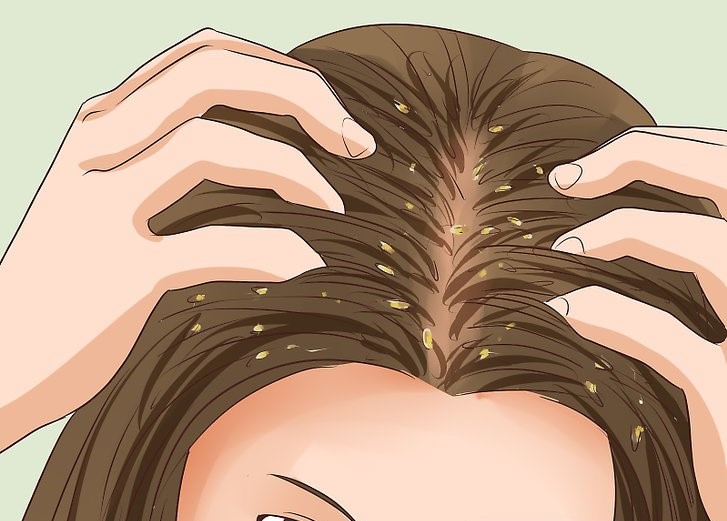Psoriasis is one infection that leaves its patients not only isolated but also very self-conscious. The incessant itching and swelling that come with it leave a mark on the skin of its victim.
Regardless of the adverse effects of this condition, certain lifestyle changes can be effected to reduce its intensity and frequency.
Trying out natural alternatives when it comes to treating psoriasis isn’t such a bad idea; in fact, it is a great one. However, when doing so it is important to keep your doctor informed throughout the process.

Symptoms Associated With Psoriasis:
In addition to the medications your doctors are prescribing, keep in mind they can always prescribe you natural alternatives that have worked on other patients with similar symptoms.
The most common symptoms with this condition are red rashes on the face, feet, hand, groin and the scalp. It is common in children as well as adults. In some cases, the rashes are in form of small red dots.
There are different stages associated with psoriasis which can be either mild or very severe. It doesn’t just occur though; certain triggers are responsible for its outbreak.
Possible Psoriasis Triggers To Avoid
Psoriasis isn’t something that just pops up out of the blues; like most other diseases, it has its own triggers which when avoided can reduce your chances of the outbreak.
Some of the triggers include:
Regular Smoking:
According to several researches, it has been discovered that there is a link between psoriasis and consistent smoking. Smoking increases your chances of developing psoriasis as a result of nicotine which has an adverse effect on the growth of skin cell and immune system.
Aside from affecting the immune system, smoking is directly related to poor management of stress which can also trigger psoriasis.
Poor Stress Management
Inflammation is one of the primary ways our bodies respond to stress which in return triggers psoriasis. With psoriasis comes a hyper immune system, hence the need for people with this condition to maintain their calm as much as possible.
Adverse Skin Conditions
Psoriasis can be triggered by skin injuries as a result of irritations, sunburns, rashes and even mosquito bites. A response called Koebner Phenomenon is responsible for this adverse reaction to irritation and it is mostly common in people with psoriasis. However, doctors are yet to discover why this is so.

Treatments For Psoriasis
Psoriasis improves with adequate and appropriate treatment despite its irritating nature. These treatments are not restricted to mild cases of psoriasis alone but also available for severe cases as well.
Below is a list of prescriptions available for patients:
Steroid Creams
Steroid-based creams reduce the excessive production of cells responsible for red patches on the skin and as a result is usually prescribed for patients with psoriasis. Its effectiveness comes with strict adherence to its prescription, skipping application as prescribed by the doctor won’t yield the desired results. On no occasion should it be used on non-affected areas of the body.
Coal Tar
Given its rate of success, coal tar has proven to be an effective treatment for psoriasis. A major disadvantage of this however is associated with its foul smell and messy nature. This does not deter patients from using it though as the affected area can always be covered up to prevent it from rubbing off on their clothes.
The use of coal tar has reduced drastically over the years with the discovery of medications which are also being prescribed by doctors.
Types of Medications
Amongst the several options available for psoriasis, oral retinoid and biologics are the two most popular. Although both are quite expensive, they are very effective in reducing the excessive production of cells and also removing the rashes that come with psoriasis.
Although they are very effective, there are some side effects which can involve pain in the bone, hair loss and birth defects.
Natural Light Therapy
This form of therapy has to do with patients stepping out at specific periods of the day so as to expose the skin to the ray of the sun. This treatment method is common amongst patients with mild psoriasis.
Natural light therapy works effectively as long as the skin doesn’t get further injured by sunburn.
Narrow-band UVB Therapy
This is a form of therapy where patients are made to pass through an ultraviolet light machine a couple of times weekly. It is recommended for those with more serious forms of psoriasis and they are exposed to more intense UVB light.
Patients need to have passed through between five to ten treatments, before results become visible.
Natural Alternatives
Natural remedies are available in cases where patients aren’t satisfied with the treatments they are receiving. They include:
Aloe Vera
The usefulness of aloe vera goes way beyond just being a plant, it does great wonders to the skin and helps to (get rid of this word) calm the itching. It also reduces the rate of skin cracking and bleeding by keeping it hydrated.
Apple Cider Vinegar
For patients with psoriasis, apple cider vinegar helps to reduce itchy skin and also serves as a disinfectant. For scalp outbreak, it is recommended to apply it to the head either purely or with a mixture of water when not sure of its concentration. It can then be rinsed off after a few minutes.
However, apple cider vinegar shouldn’t be used with cracked or bleeding rash as the result can be severe.
Oats
Oats are known to reduce itchiness and skin swelling. All you need to do is run a warm water bath with a handful of oats and it will help sooth your skin.
Oregon Grape
The Oregon grape is not just your regular grape. Not only does it look different from every other grape, it also performs some healing functions unlike any other.
Psoriasis can result in redness of the skin and also cause inflammation. The Oregon grape is known to help reduce these adverse effects in patients as long as Oregon grape cream being used contains at least ten percent of its extract.
All you have to do is study how your body reacts to certain products and learn what suits your suits your skin best.
Once this is figured out, you will be able to control and reduce the unpleasant effects that come with psoriasis.